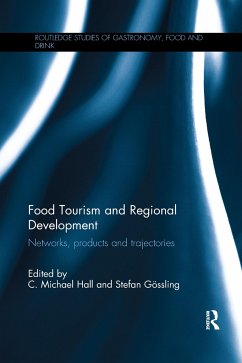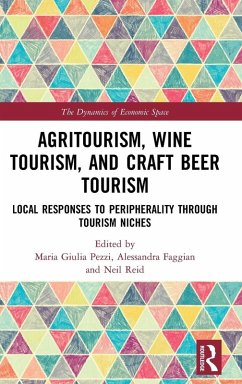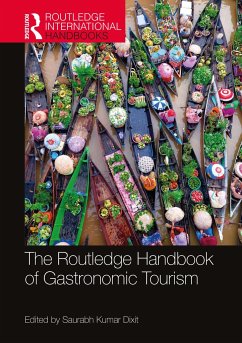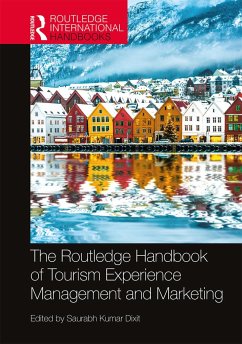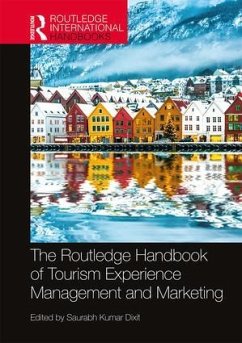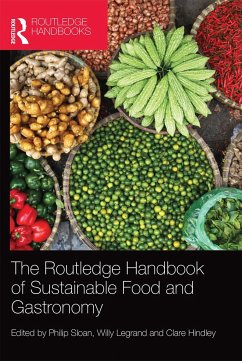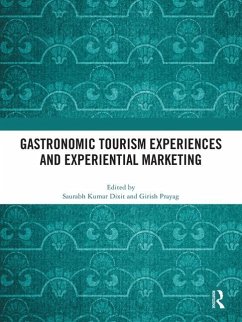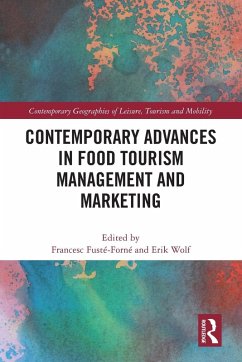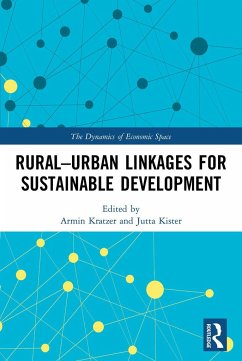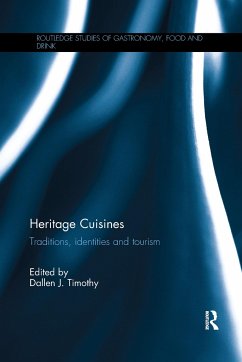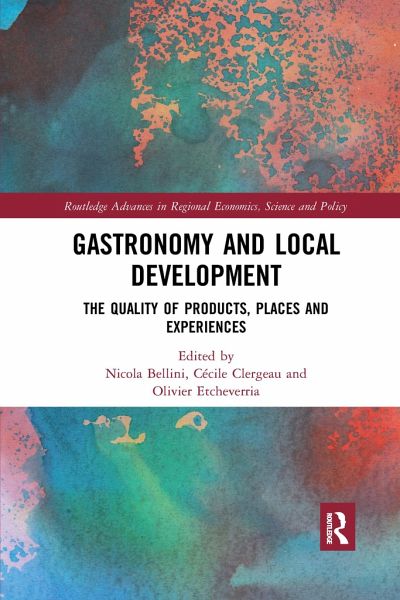
Gastronomy and Local Development
The Quality of Products, Places and Experiences
Herausgegeben: Bellini, Nicola; Clergeau, Cécile; Etcheverria, Olivier
Versandkostenfrei!
Versandfertig in 6-10 Tagen
47,99 €
inkl. MwSt.

PAYBACK Punkte
24 °P sammeln!
Gastronomy, particularly gourmet tourism, is widely acknowledged as having a powerful impact on local development. Public policies have developed in response to research, highlighting gastronomy as key in a successful tourism economy.However, research thus far has not fully explored the underlying mechanisms of gastronomic tourism, in particular the marketing and perception of quality, on economic development. This book considers how the quality of products, places, and experiences contributes to the desirability and competitiveness of gourmet touristic destinations. The contributors present t...
Gastronomy, particularly gourmet tourism, is widely acknowledged as having a powerful impact on local development. Public policies have developed in response to research, highlighting gastronomy as key in a successful tourism economy.
However, research thus far has not fully explored the underlying mechanisms of gastronomic tourism, in particular the marketing and perception of quality, on economic development. This book considers how the quality of products, places, and experiences contributes to the desirability and competitiveness of gourmet touristic destinations. The contributors present theoretical and empirical studies to create an original conceptual framework for regional development based on the quality of products, of places, and of touristic experience. It also examines the ways in which quality is linked to identity, diversity, innovation, and creativity.
With an interdisciplinary approach, this book will be of interest to researchers in tourism and hospitality, regional studies, and human geography, as well as to tourism development professionals and policymakers in the areas of rural and local development.
However, research thus far has not fully explored the underlying mechanisms of gastronomic tourism, in particular the marketing and perception of quality, on economic development. This book considers how the quality of products, places, and experiences contributes to the desirability and competitiveness of gourmet touristic destinations. The contributors present theoretical and empirical studies to create an original conceptual framework for regional development based on the quality of products, of places, and of touristic experience. It also examines the ways in which quality is linked to identity, diversity, innovation, and creativity.
With an interdisciplinary approach, this book will be of interest to researchers in tourism and hospitality, regional studies, and human geography, as well as to tourism development professionals and policymakers in the areas of rural and local development.





